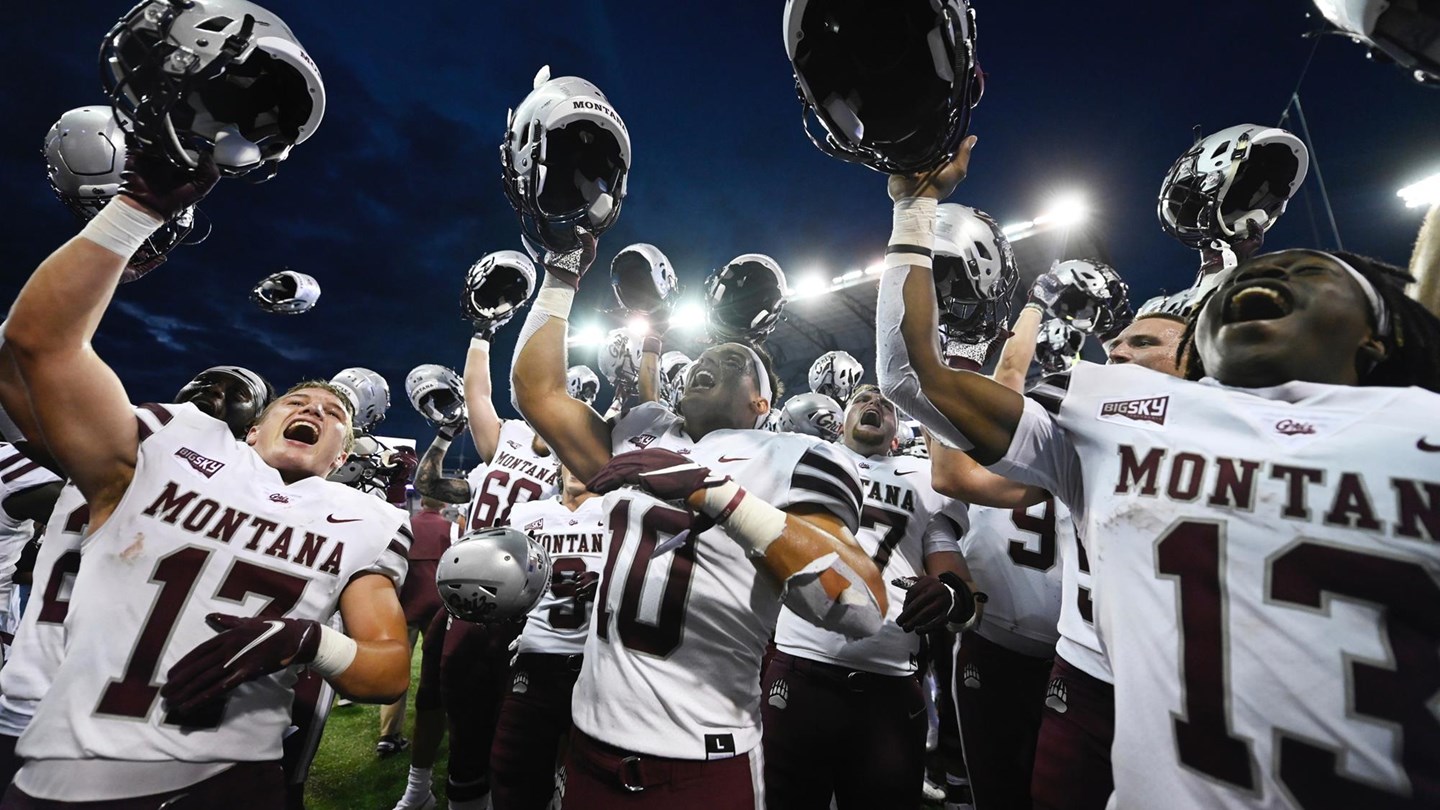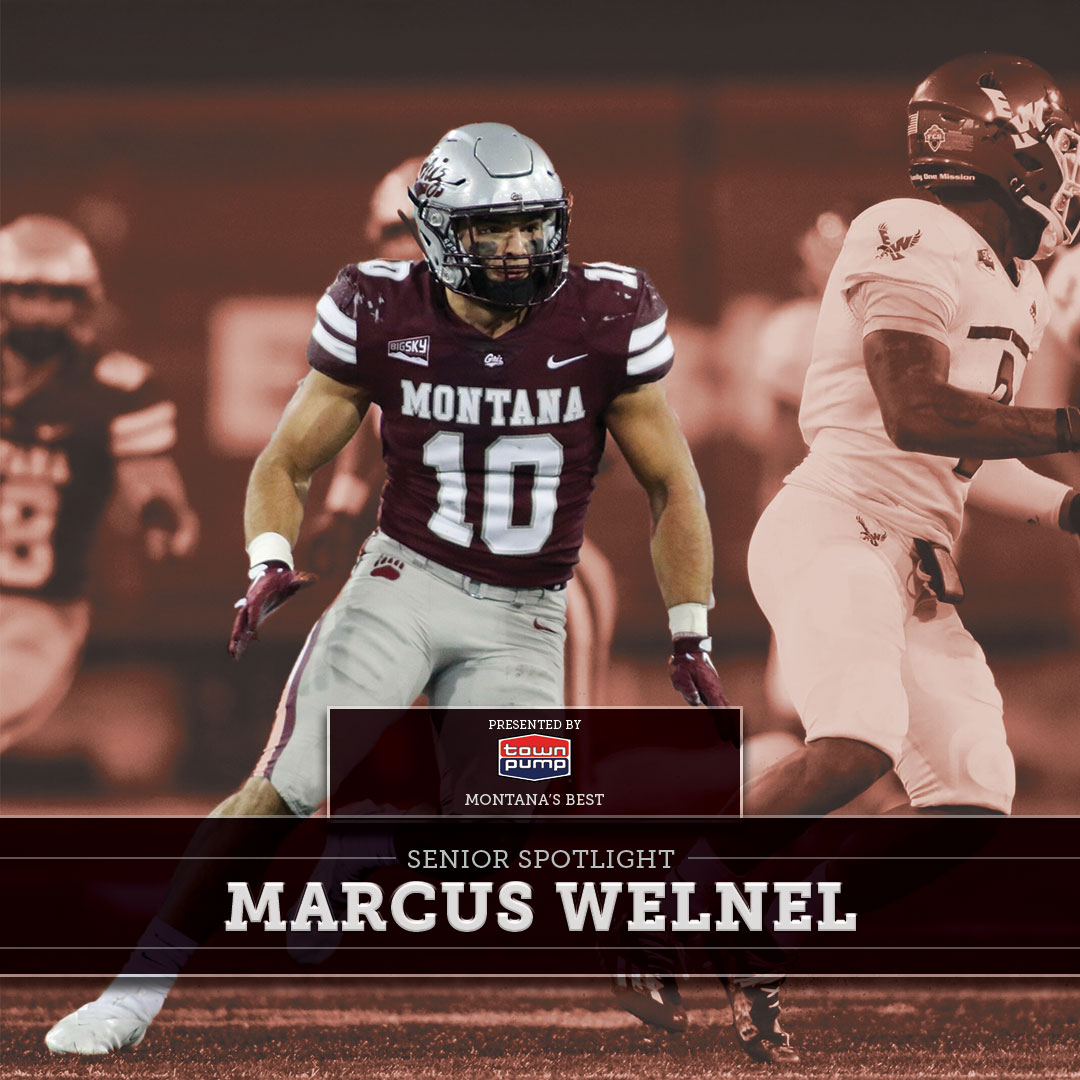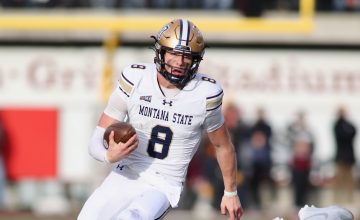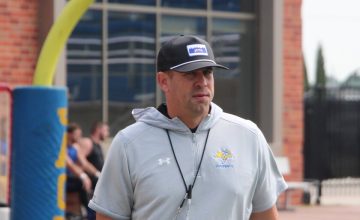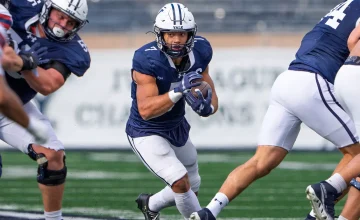As soon as his youth football games ended on Saturday mornings, Marcus Welnel remembers the race. If his game got over early enough, or if the Montana Grizzlies had a late kickoff, the Welnels could make it over from Helena in time for kickoff at Washington-Grizzly Stadium.
He was raised in the shadow of two winning traditions: Helena Capital High School, where the Bruins made five straight Class AA title games between 2005 and 2009 and won the middle three. And the Montana Grizzlies, at that time enjoying their height of their near-decade-long run of success under Bobby Hauck.
“If we played the early game for small fry and the Griz maybe kicked off at two or three, then I would always come down to the Griz game, and just the excitement of playing my game and then going to see those guys play, it was awesome,” Welnel said. “Just how big and fast they were and the atmosphere around Griz football.”
Welnel grew up steeped in the pride and the mythology of the Montana Grizzlies, aware of the all-consuming importance of the game at the end of the season between the Griz and the Bobcats. The best way to get an idea of the stature of Montana and Montana State football in the Treasure State is to observe the rivalry game.
Consider this: Jace Lewis, a year removed from his last college game, still referred to Montana State as “over the hill there.” From the opposite side of the rivalry, former Bobcat All-American cornerback Joey Thomas, nearly two full decades past his last college game, referred to his alma mater as “the only team in Montana.”
Consider this too: the closest thing the state of Montana has to a superhero wears No. 37 for the Montana Grizzlies. Since Kraig Paulson passed the jersey down to Tim Hauck in 1986, it symbolizes everything that the state sees in its best and brightest young men – toughness, determination and selflessness; grit, talent, dedication and pride.
And since he was old enough to go to Griz games, it was the only thing Marcus Welnel ever wanted to be.

Now, after growing up to achieve that dream, he’s the latest in a long chain of talented linebackers who embody exactly what it means to be from the Treasure State and play for the Griz.
“As a Griz fan growing up, that’s just the epitome of Griz football,” Welnel said. “I always said, I had one individual goal as a football player, and that was to wear 37 for the Griz.”
***
Among the phrases that encompass the responsibilities of the holder of the No. 37 jersey, there’s one that stands out. Welnel knows it by heart, so well that he finishes the thought before the reporter even gets it out.
“The pride and tradition of the Montana Grizzlies,” Welnel recites, “will not be entrusted to the timid or the weak.”
It’s tempting, and dangerous, to ascribe all the qualities the jersey is supposed to represent to the player selected to wear it. In the end, the jersey is not the man. There are complexities to uncover, complications to excavate. It’s why superhero stories are interesting – Clark Kent is both better and worse than Superman, and the tension comes from the gap between the two.
But with Marcus Welnel, it might really be that simple. Talk to him, and the people around him, and you realize: there are many qualities, aside from being good at football, that Montana’s legacy jersey is supposed to represent. Marcus Welnel just happens to possess all of them.
“Nothing about Marcus is fake,” said Kyle Mihelish, his head coach at Helena Capital. “All coaches say, you know, he’s good in the weight room, he’s good in the classroom. You say those things and maybe gloss over some things and put it out to the media. But Marcus Welnel is everything he’s billed to be.”
Welnel started lifting weights as part of Helena Capital’s strength program as a sixth grader under the watchful eye of Lon Carter. This was as the Bruins were finishing up their run that made them the most successful Class AA team of the early 2000s – they won seven state titles in all between 1999 and 2011.
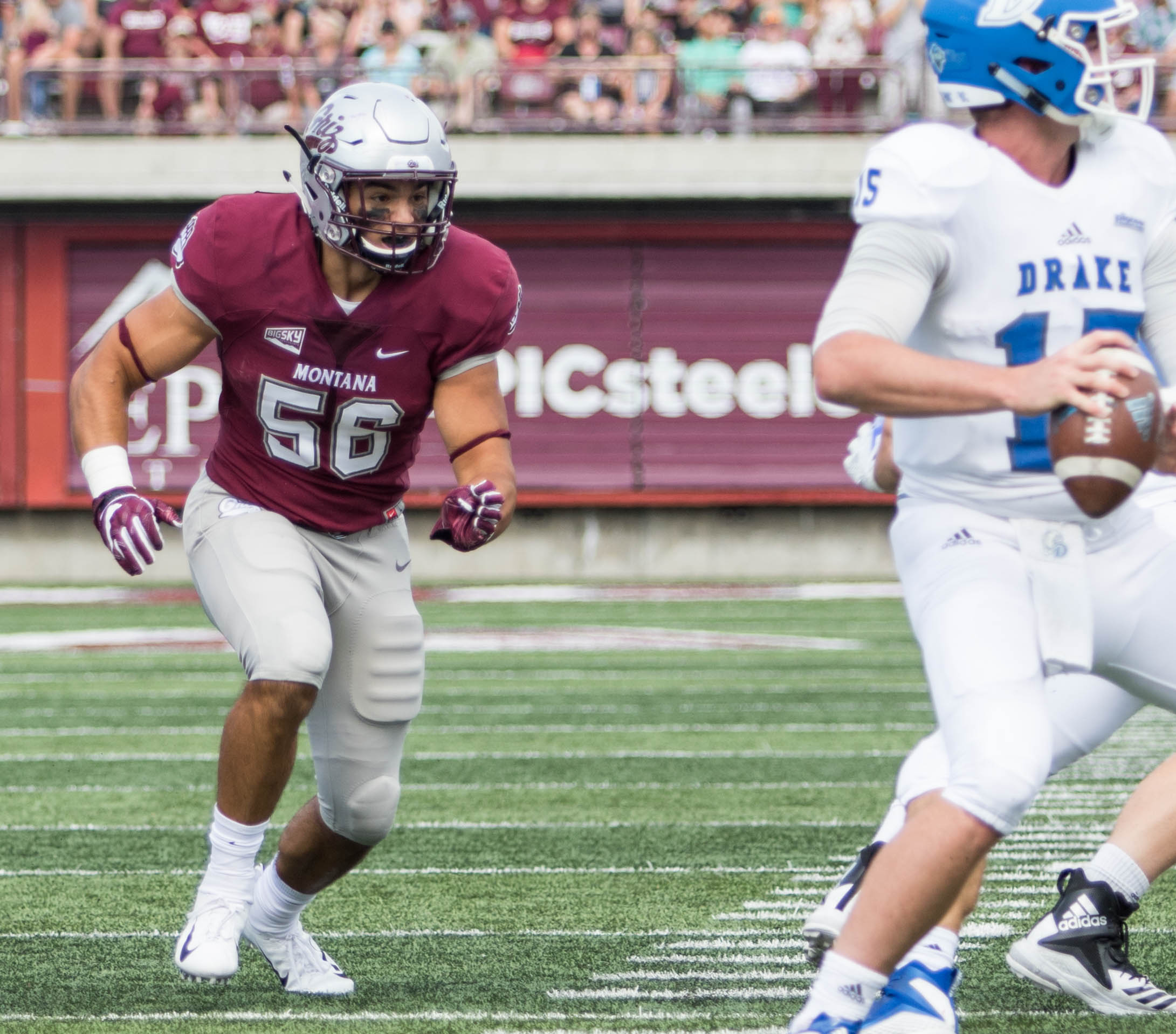
(The Bruins capped an undefeated season and won the 2022 Class AA state championship with a 35-14 win over Bozeman the Friday night before Welnel’s last rivalry game.)
Even in a program used to that much talent, Welnel stood out from a young age. Players rarely broke into Capital’s lineup before becoming upperclassmen. But Welnel had everything – precocious speed, strength and smarts. Before his sophomore year, Mihelish made him the starting Sam linebacker.
Welnel wasn’t a similar star for Helena Capital’s basketball team – he was “built like a football player,” Bruins coach Guy Amquist observed – but Almquist quickly figured out that whatever he asked, Welnel would try his hardest to get it done.
“If you ever talked to him and said, Marcus, we need this out of you, we need you to rebound the ball, instantly you would see a change,” Almquist said. “He would make a change, he would make an improvement. And I remember him going out the next game, which was a crosstown game, he’s got 10 rebounds. He’s, you know, 6-1 at the most, but he knew that was what would help his team.”
Both coaches still mention Welnel’s work ethic and drive to improve himself. Mihelish, at least, hasn’t had an opportunity to forget it – every time Welnel comes back to Helena Capital, he asks the football team’s trainer for exercises to improve his flexibility.
“What he told us all the time was that his goal was to be 37,” Mihelish said. “And he did it, he put his mind to it and he did it. Some kids give it lip service, but Marcus knew exactly what he wanted to do, and he set out and did it.”
***
In the chaos of last year’s Brawl of the Wild at Washington-Grizzly Stadium, Jace Lewis found himself keying on the guy next to him.
Montana State — stunned by a 74-yard Junior Bergen touchdown on the second play of the game and slowed by Montana’s defense — had the Bobcats experimenting like a mad scientist, trying to find something workable on offense. And last year’s Bobcats had plenty of potential combinations. Troy Andersen at quarterback. Tommy Mellott at quarterback. Tommy Mellott at quarterback and Troy Andersen at running back.
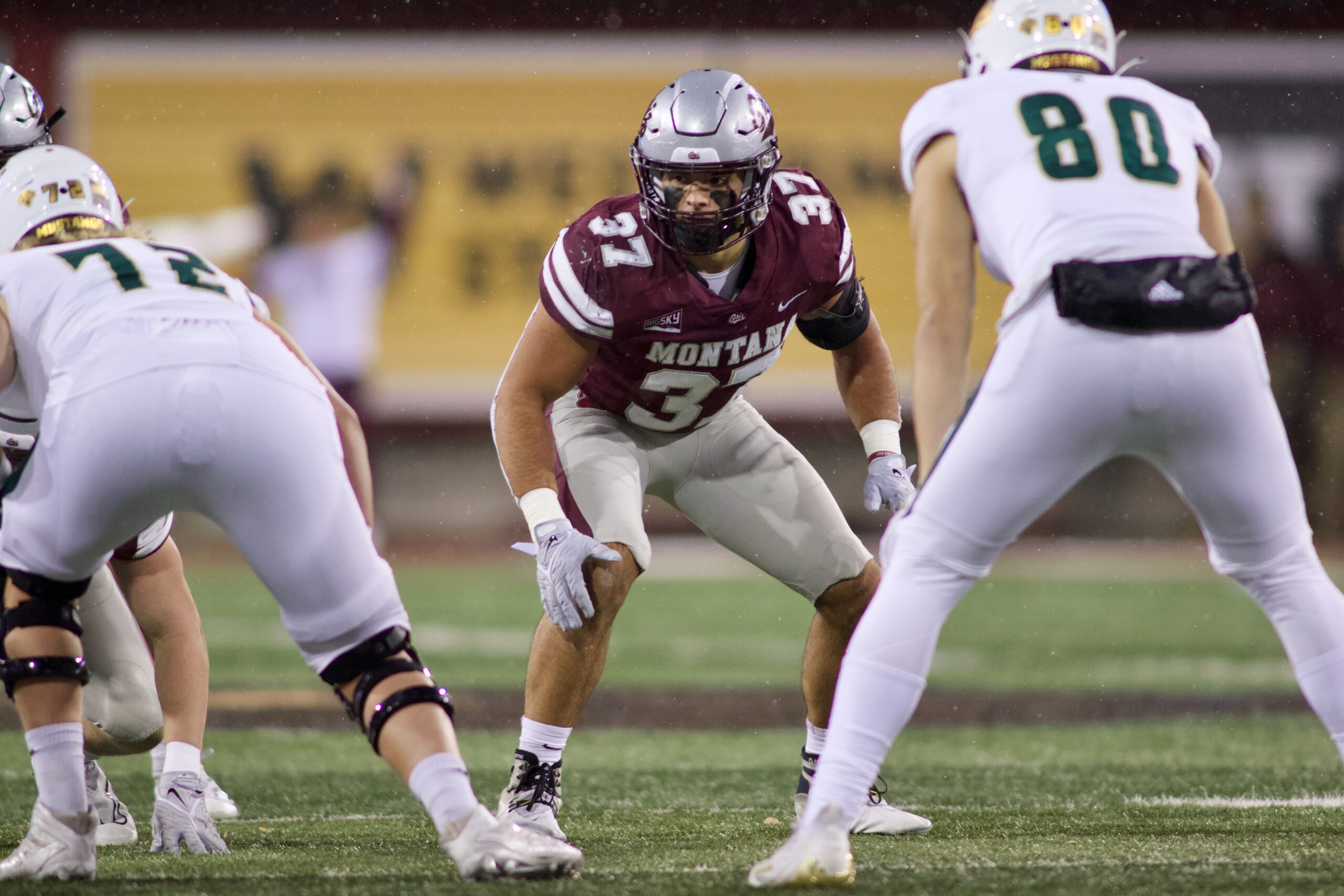
Through it all, Welnel was the player making sure Montana’s defense was lined up correctly.
“It was so loud that you couldn’t hear anything, but Marcus was somehow getting everybody aligned,” Lewis said. “You know what we are trying to do, but at the time, I mean, I was so tunnel visioned I was just focused on the game. Every game we played, if there were adjustments to be made, he was always the one. I mean, he’s truly like the quarterback.”
If the first thing people mention about Welnel is his determination and work ethic, the second is his brain.
He’s been Academic All-Big Sky for the last three years while studying for multiple master’s degrees in finance (“I don’t know if that’s for making money for people or taking people’s money,” Mihelish joked).
Almquist described it not only as intelligence, but as perspective – the ability to see things as they are.
“The biggest thing with Marcus, playing with him compared to anybody I’ve played next to, is just how smart he was,” Lewis said. “That’s what stood out the most to me, is just how smart he is at the game and how much he cares and studies and prepares for every game.”
Welnel arrived at Montana in 2017, a year after Lewis. It was Bob Stitt’s final year with the Griz, the end of an uncertain and unhappy time for the program, and Welnel was put right on the conveyor line of Griz linebackers, well-established by that time.
A year in front of him, Lewis was following the same path. Redshirt for a year, then special teams, then backup, then starter. That year, Josh Buss was the star, Dante Olson was the promising backup, Lewis was the special teamer and Welnel…well, Welnel sat in the stands on gameday with the rest of the redshirts.
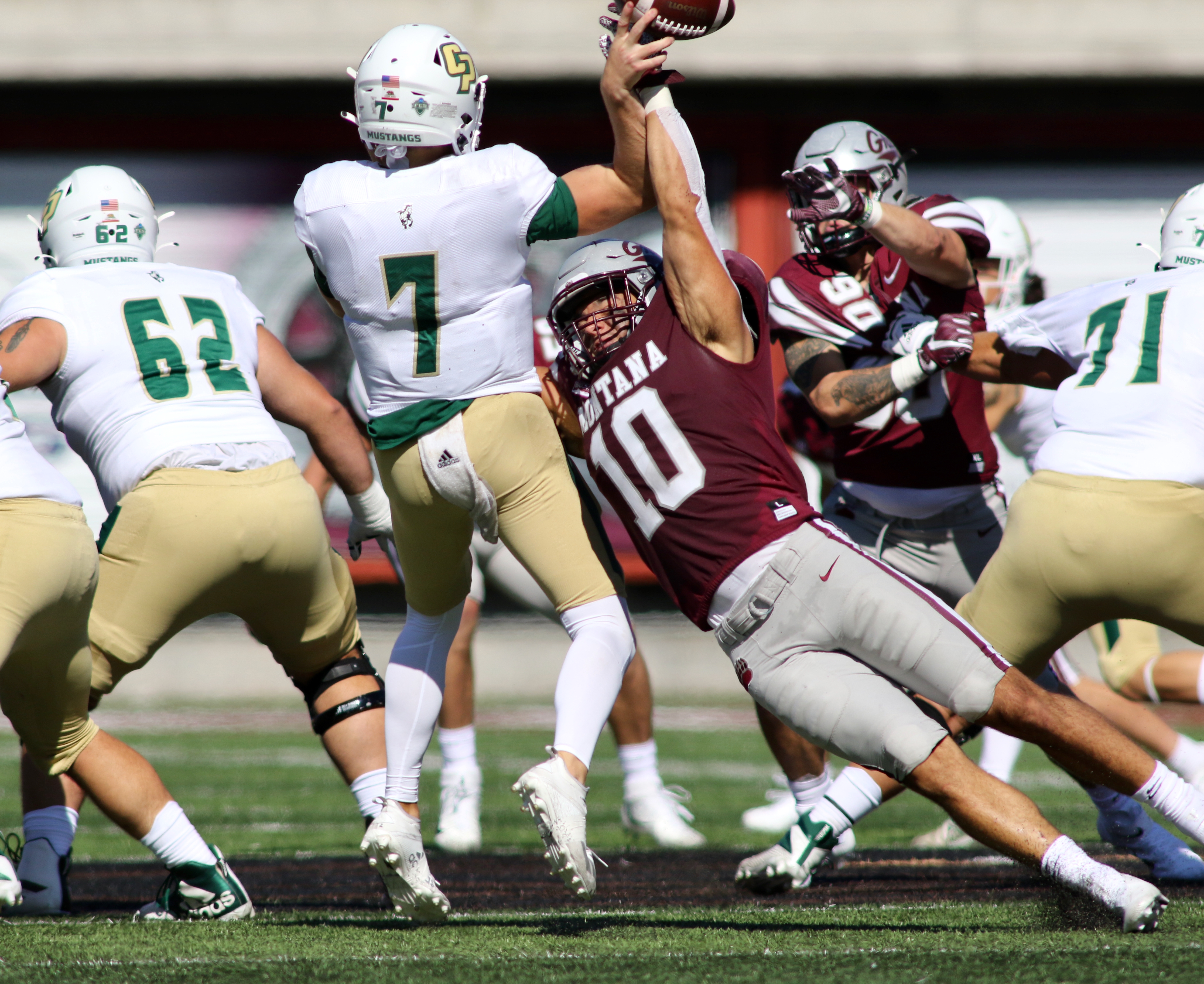
Buss, from Boise, ended up as a two-time all-Big Sky player who was a consensus preseason All-American as a senior in 2018 before injuries depressed his stats. Olson, from Medford, Oregon, got an NFL shot after his 179-tackle senior season in 2019 earned him the Buck Buchanan Award. Lewis, from Townsend, Montana, broke out with a 131-tackle season that same year.
It’s not uncommon to struggle with going from being a star in high school to not even on the sidelines in college, not to mention dealing with the reality that playing time won’t be guaranteed even in the future – certainly not for an undersized partial scholarship player like Welnel. But as he adjusted to the speed of the game and started to make the steps up himself, Welnel approached the grind with his usual wisdom.
“It’s tough because you really feel like you can go out there and help your team win,” Welnel said. “(But) I’m so glad I got to redshirt just because you’re just a group of guys that you’re on scout team together. Everyone lifts together really early in the morning. It’s just a group of guys you really bond with and know that this is going to be a group for the next few years.”
The next year, in Bobby Hauck’s first season back in charge, Welnel played in all 11 games with 16 tackles and a blocked punt.
In 2019, he had 23 more tackles. It wasn’t much, but Welnel kept working. He noted the similarities to Helena Capital, two programs that had too much pride and too much winning tradition to put players on the field if they hadn’t earned it. He’d been seeing it his whole life – young players learned first, learned about the pressure and the expectations and the right way to do things. Then they played.
“Winning is important there,” Welnel said about Capital, although he could just as easily been talking about the Griz. “It’s not like you can just lose some games and it’s all right. I mean, people expect you to win every single game. That’s the pride thing. … And that’s kind of what I’ve always appreciated about both programs.”
The workouts and the conditioning, the long hours and extra work, weren’t necessarily getting Welnel any closer to playing time – or at least, it was hard to see that they were. It could be disappointing, it could be frustrating.
It was also making him tougher, preparing him for the day when he would have to step into the shoes previously worn by Buss and Olson and Lewis.
The pride and tradition of the Montana Grizzlies will not be entrusted to the timid or the weak, the program promises to every player, and it was making sure Welnel would be neither of those things when the time finally came.
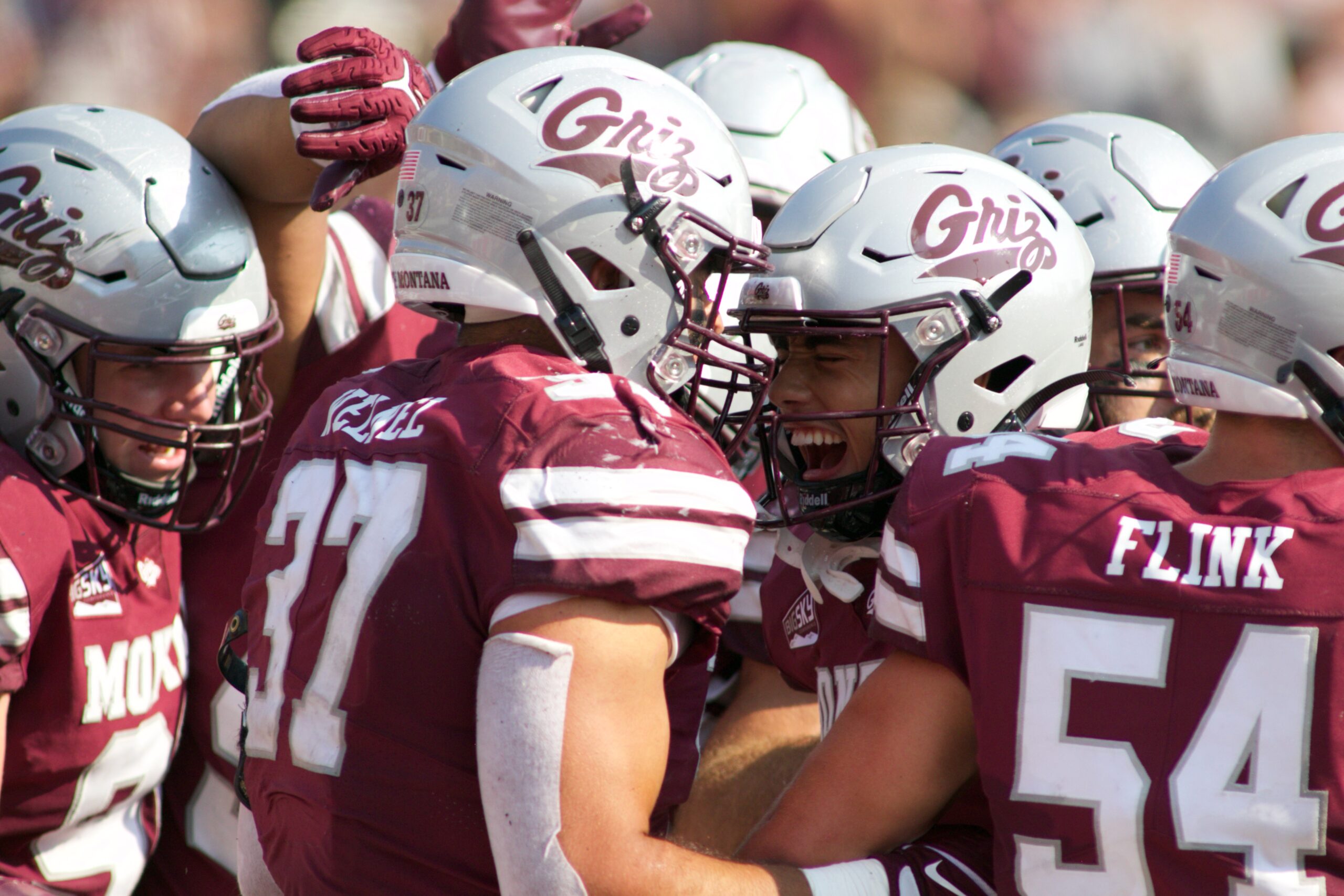
“He came in and had to kind of work his butt off to get where he was,” Lewis said. “It’s a struggle and a hump you have to get over in your career. You start having doubts. … I mean, I could talk (about that). That’s every linebacker in the room, too.”
***
At the exact moment he became a star, Marcus Welnel silenced 60,000 people.
He’d already had two sacks against Washington at Husky Stadium in the 2021 season opener. When he picked off Dylan Morris to seal the Grizzlies’ shocking 13-7 win – still Montana’s highest peak in Hauck’s second run – he went from being a player that some Griz fans couldn’t recognize on the street to being played over and over again on SportsCenter.
It was his first career start. Welnel didn’t want the attention, didn’t want to be the focus of all the stories that lasered in on him because, c’mon, that’s just too perfect of a storyline.
He still doesn’t. In fact, what he liked most about the moment was that it put Montana back on the national map, restored a little bit of the aura of the Grizzlies.
“I mean, that was just a huge team win,” Welnel said. “To be able to beat the number 20 team in the nation at that point was one of the cooler experiences I’ve ever done. As a team in general, offense doing their job, defense holding them to only seven points, it was really cool. … Coach Hauck uses the term Return to Dominance and after that game it really showed that we were back.”
That kicked off a season-long tour of one of the greatest three-man acts ever to grace Washington-Grizzly Stadium. The performers? Patrick O’Connell, the pass-rushing edge linebacker from Kalispell who’d originally played baseball and football at the University of Mary because Stitt didn’t want him as a Griz. He finished with 105 tackles, 14 sacks and a runner-up finish in Buck Buchanan Award voting.
Lewis, who’d inherited the No. 37 from rock-solid defensive lineman Jesse Sims, from Stevensville, before Sims’ tragic death in an ATV accident. In his final season, Lewis racked up 100 tackles and 15 ½ tackles for loss.
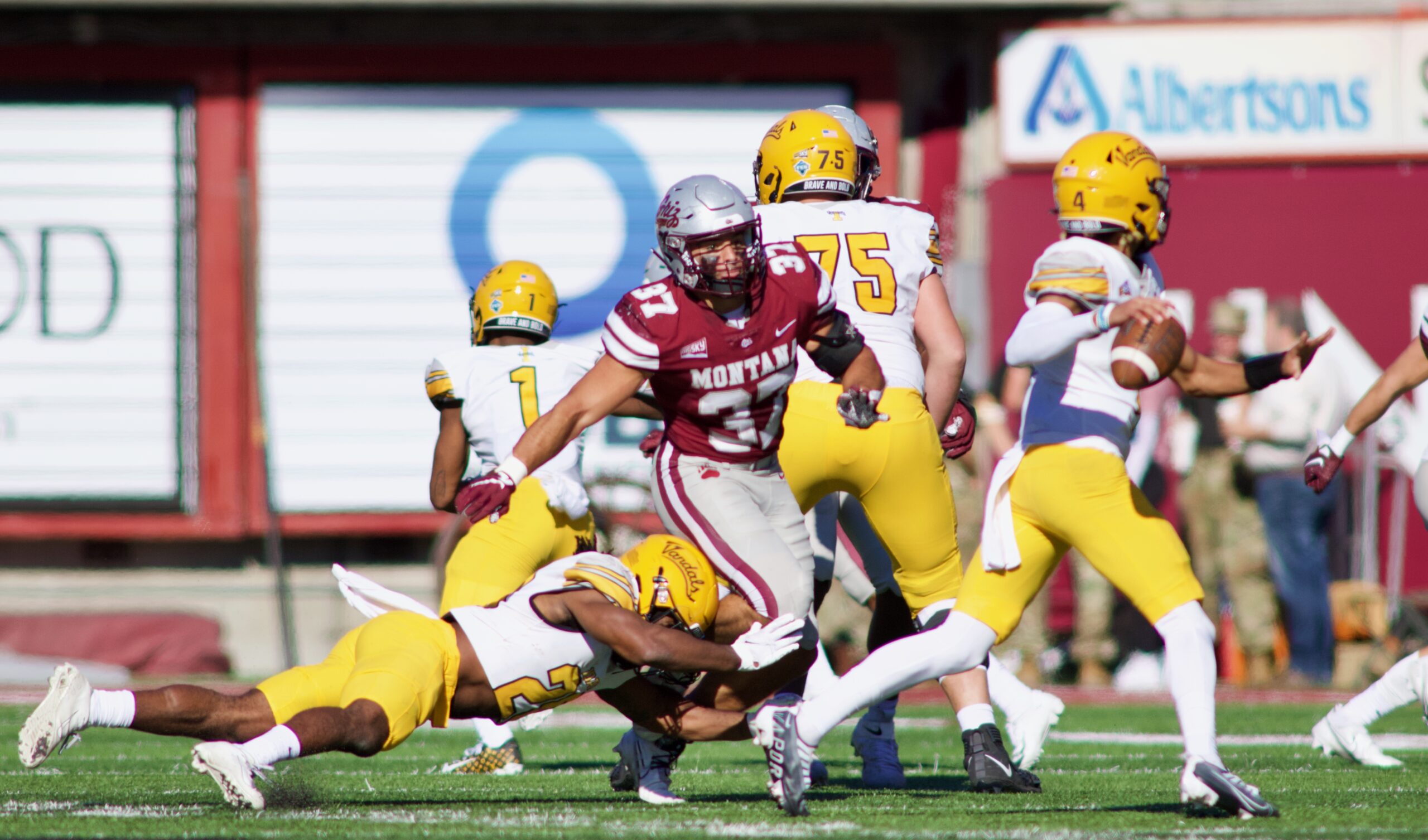
And Welnel, finally breaking into the lineup, finally taking the step that he’d seen Lewis take the season before, and Olson the season before that. After owning 49 career tackles in three previous seasons, he finished with 94, plus eight sacks and three interceptions.
He was everything that Mihelish had seen years ago in Helena – sideline-to-sideline fast, always physical, a little bit of meanness and always, always in the right place.
“We were always in the film room getting better, but at the same time, you’re putting in new stuff every week and sometimes stuff gets confusing, but Marcus would always make it so you’re never really confused out there,” Lewis said. “I feel like he could tell anybody on the field where they need to be.”
Aside from his coming-out party against Washington, Welnel also made one of the most important plays of Montana’s season, leaping to just barely block a field goal that would have given otherwise winless-in-conference Southern Utah a 22-20 lead with just over three minutes left at Washington-Grizzly Stadium.
The road eventually ended for Montana last year in the national quarterfinals against James Madison, the second straight final-eight appearance for the Griz after not making it that far (officially – the vacated 2011 team went to the semis) since 2009. Welnel had seven tackles.
Lewis retired from football after the season instead of taking a shot at playing professionally. He was the last of the line of players in front of Welnel, the last of the lineage he’d learned from and backed up. Now, the pride and tradition of the Montana Grizzlies was fully entrusted to Marcus Welnel.
At some point before the 2022 season, Welnel and Lewis got a burger together at the Mo Club, and Lewis told Welnel he was officially passing down the No. 37 jersey to him.
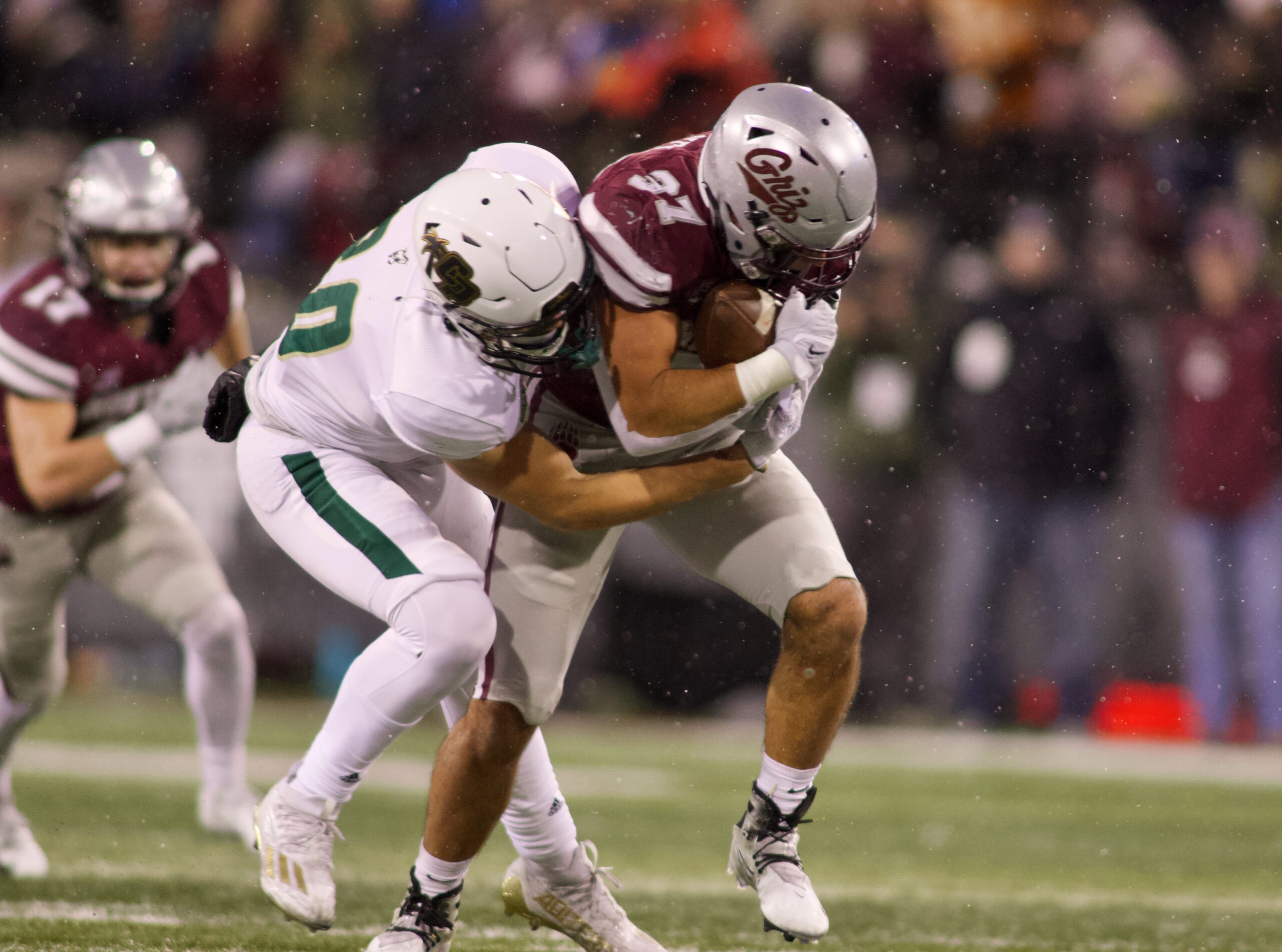
“It was a tough decision for me, because there’s more than one guy that probably could wear the jersey,” Lewis said. “I thought Marcus embodied what 37 is all about. He was born in Montana, he graduated from a Montana school. He worked his way up, had a similar path as I did. Didn’t get anything handed to him, was barely on any scholarship.
“I mean, he had to bust his butt every day to get some playing time, and it just goes to show you, having that Montana grit, Montana tough, he’s Montana through and through.”
***
Marcus Welnel has a magic trick. Whenever the Montana Grizzlies’ defense wants to make things happen – whether they’re lashing out like a wounded animal after giving up a big play, or want to keep the momentum rolling after a score, or just want to remind the opposing offense of their rightful place in the world – there’s one call Kent Baer dials up more than anything else: A-gap blitz.
A swirling mess of pre-snap movement, shifts and stunts, is disguise for one, seemingly simple tactic – at the snap, Montana’s linebackers attack the gap on either side of the center, the shortest route straight into the backfield.
Patrick O’Connell, who might be the best edge pass-rusher in the country, is good at this. But Welnel, the Grizzlies’ returning starting linebacker who isn’t a candidate for the Buck Buchanan Award, is transcendent at it, with an alchemical blend of strength and speed and timing and intuition. He appears in the quarterback’s face as though he’d snapped his fingers. From the stands and from the press box, it looks easy. Welnel knows better.
“Watching a lot of film, you can kind of tell what the offense is going to do,” Welnel said. “(And then) to be able to make those big plays, we need everyone else to do their job. The D linemen around us need to be able to get their pressure and contain the quarterback. And then the secondary needs to cover their guys, so then we can get up there and get pressure. It’s a full 11-man thing to get those big plays.”

There it is, all in one. Selflessness, toughness, talent, hard work. When you read that quote, it looks like Marcus Welnel was destined to wear the No. 37 for Montana, like all he had to do was snap his fingers and it happened.
Of course, if it was that easy, Marcus Welnel wouldn’t mean quite so much to so many people.
“It’s a historic program and an awesome program,” Welnel said. “And to be the 37, it’s always been, since it started, the guy that’s supposed to represent that program and show the qualities of it. It’s hard to put into words for me, I really can’t. It just means so much to me and the state of Montana.
“And to know the guys that have played before me and worn that number, and how well they honored the number and represented the state of Montana, to know that Jace thought I would be deserving of that category is really an honor, and I’m just blessed to be able to do it.”
Photos by Brooks Nuanez or noted. All Rights Reserved.
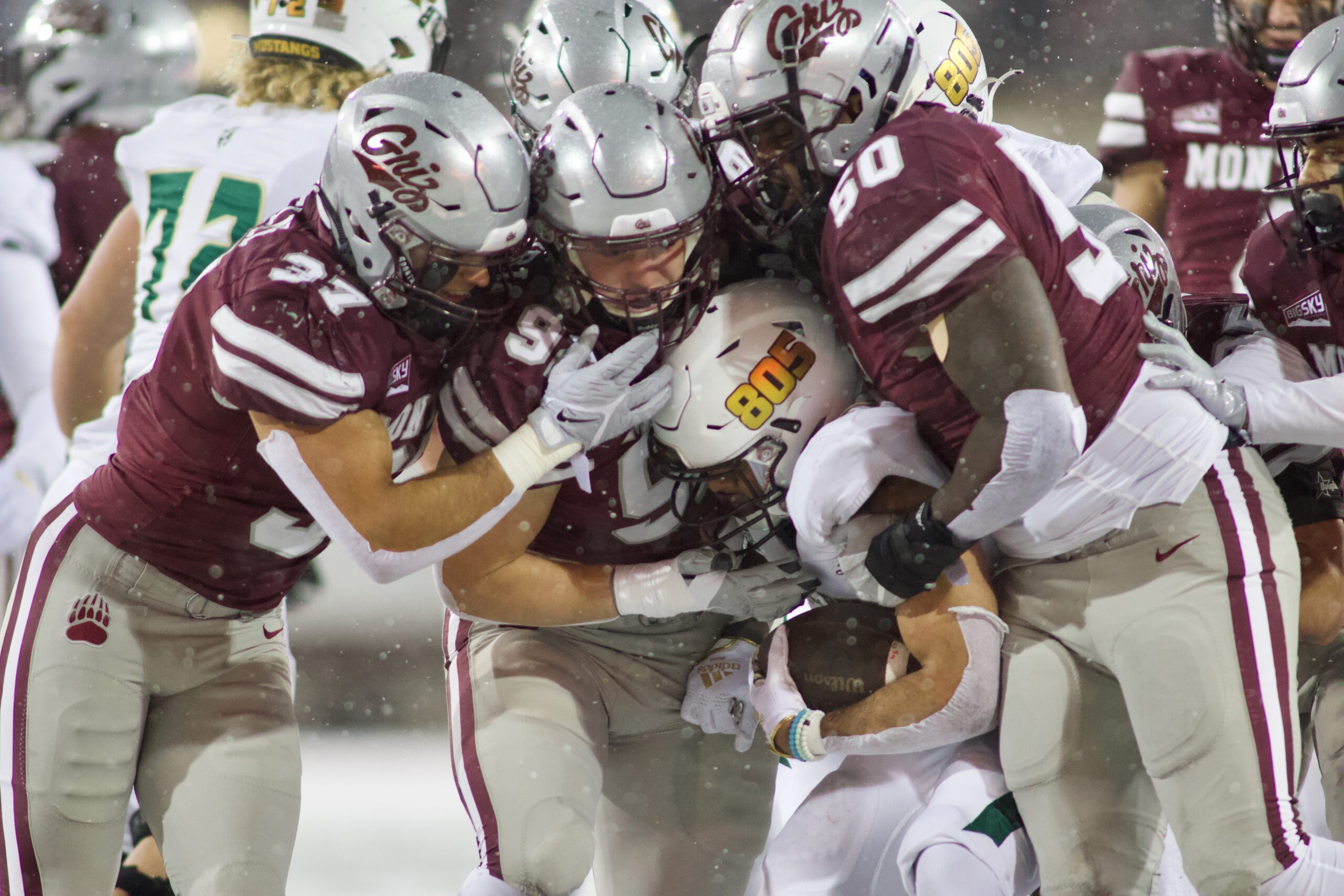
Montana defenders Marcus Welnel (37), Deari Todd (50) & Jacob McGourin (92) blow up a Cal Poly running play/by Brooks Nuanez 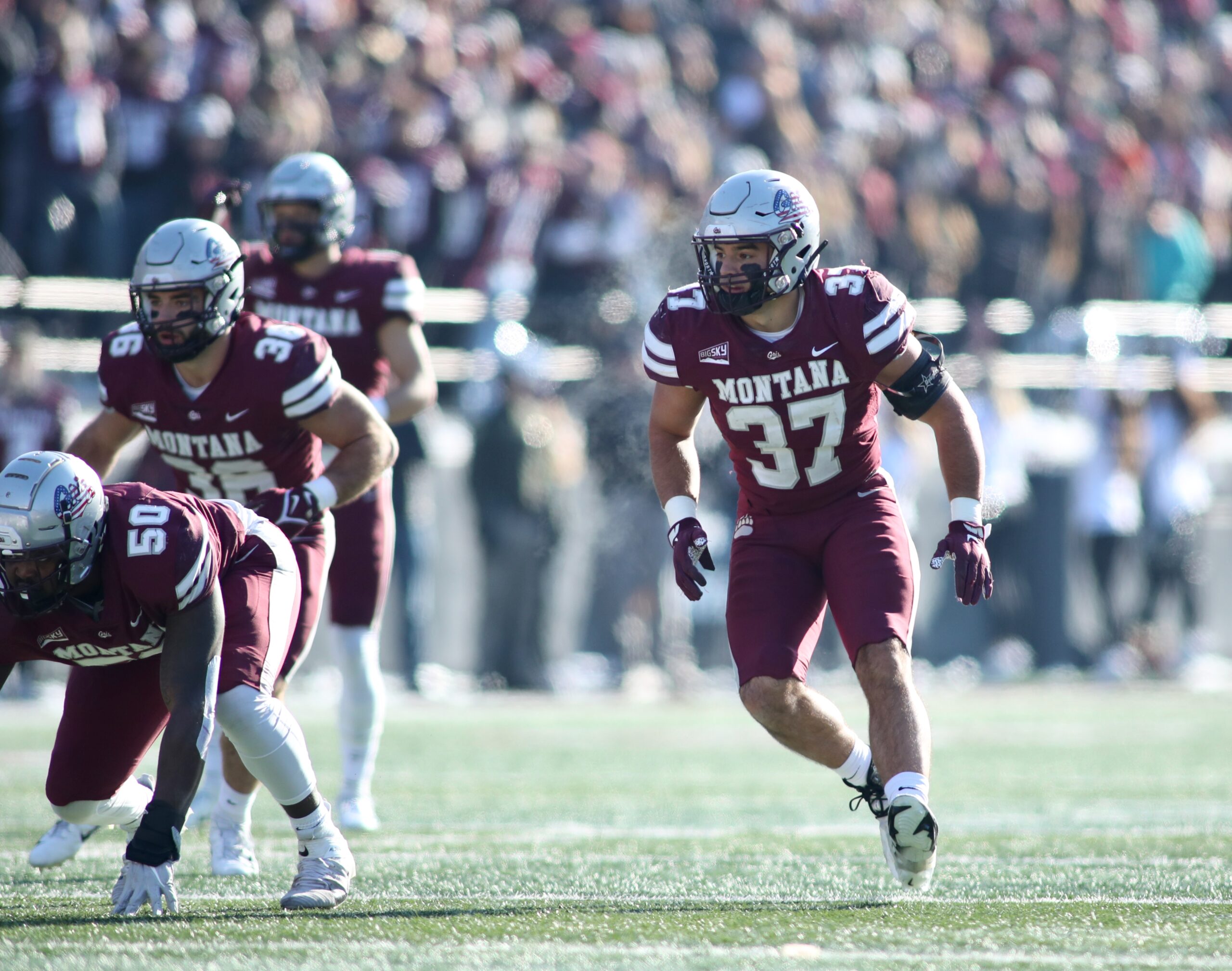
Montana linebacker Marcus Welnel (37) shows pressure on the edge vs. Eastern Washington/by Brooks Nuanez 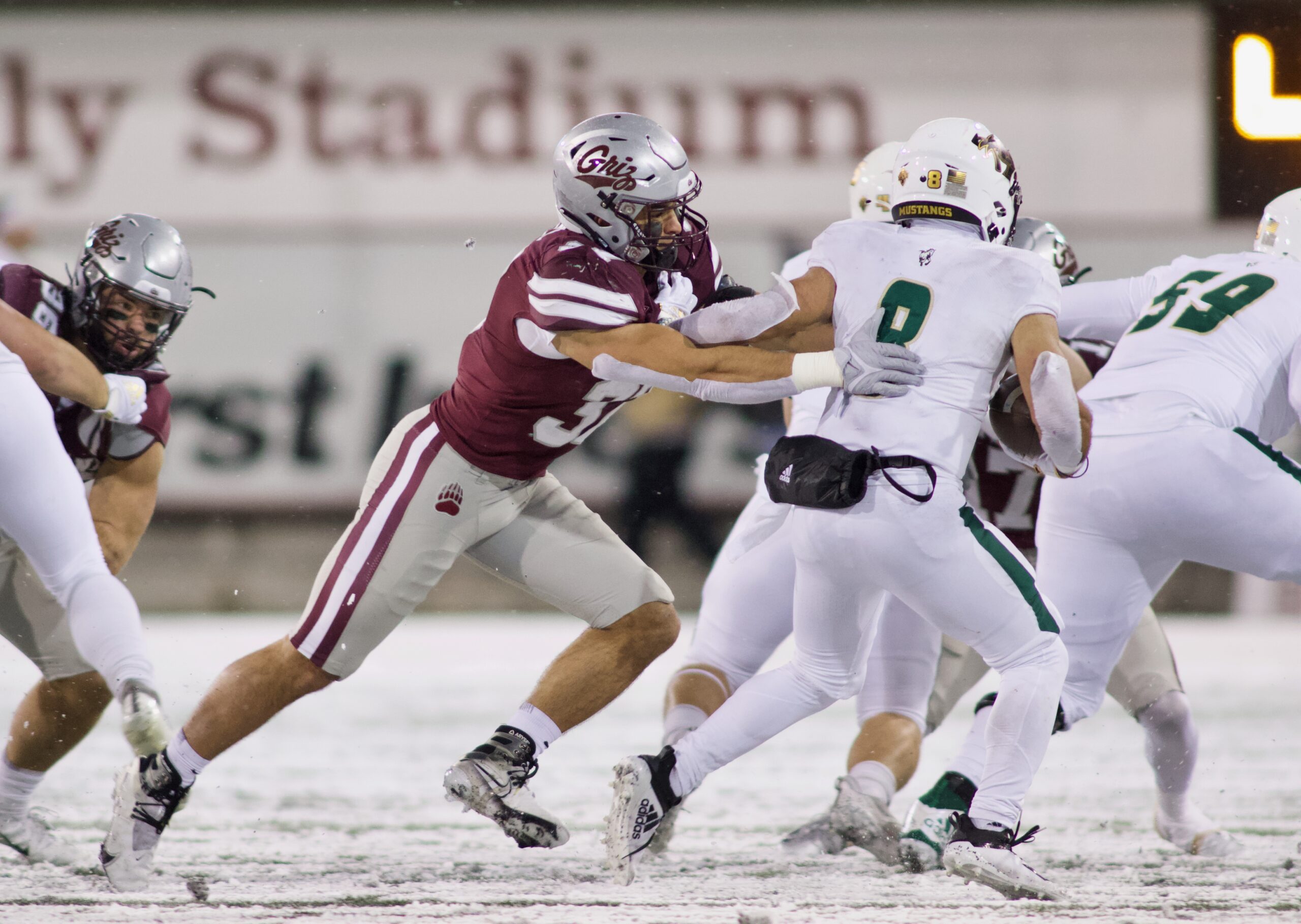
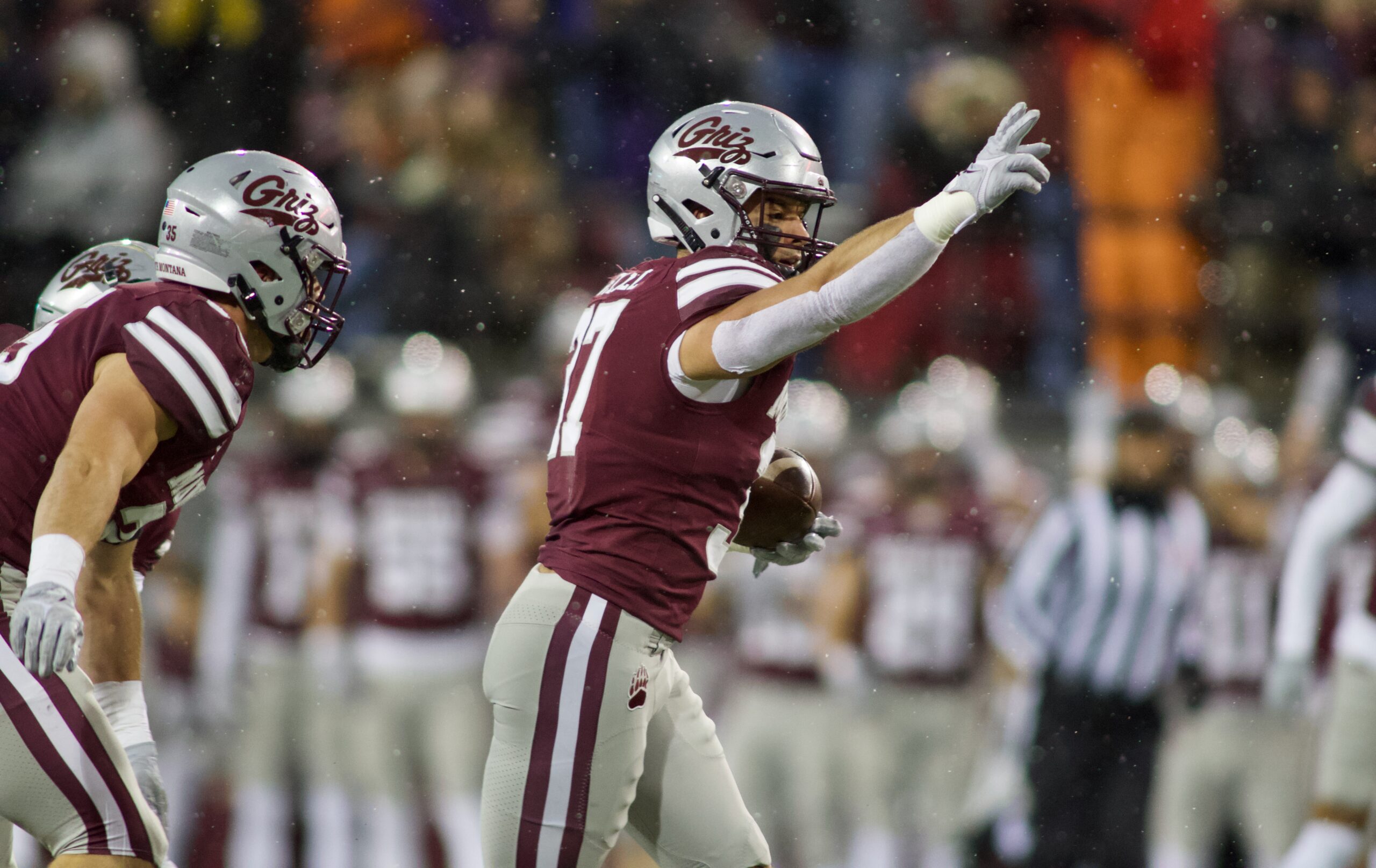
Marcus Welnel (37) celebrates an interception vs. Cal Poly/by Brooks Nuanez 
Montana linebacker Marcus Welnel (10) and cornerback Jayden Dawson (2) celebrate in 2022/ by Brooks Nuanez 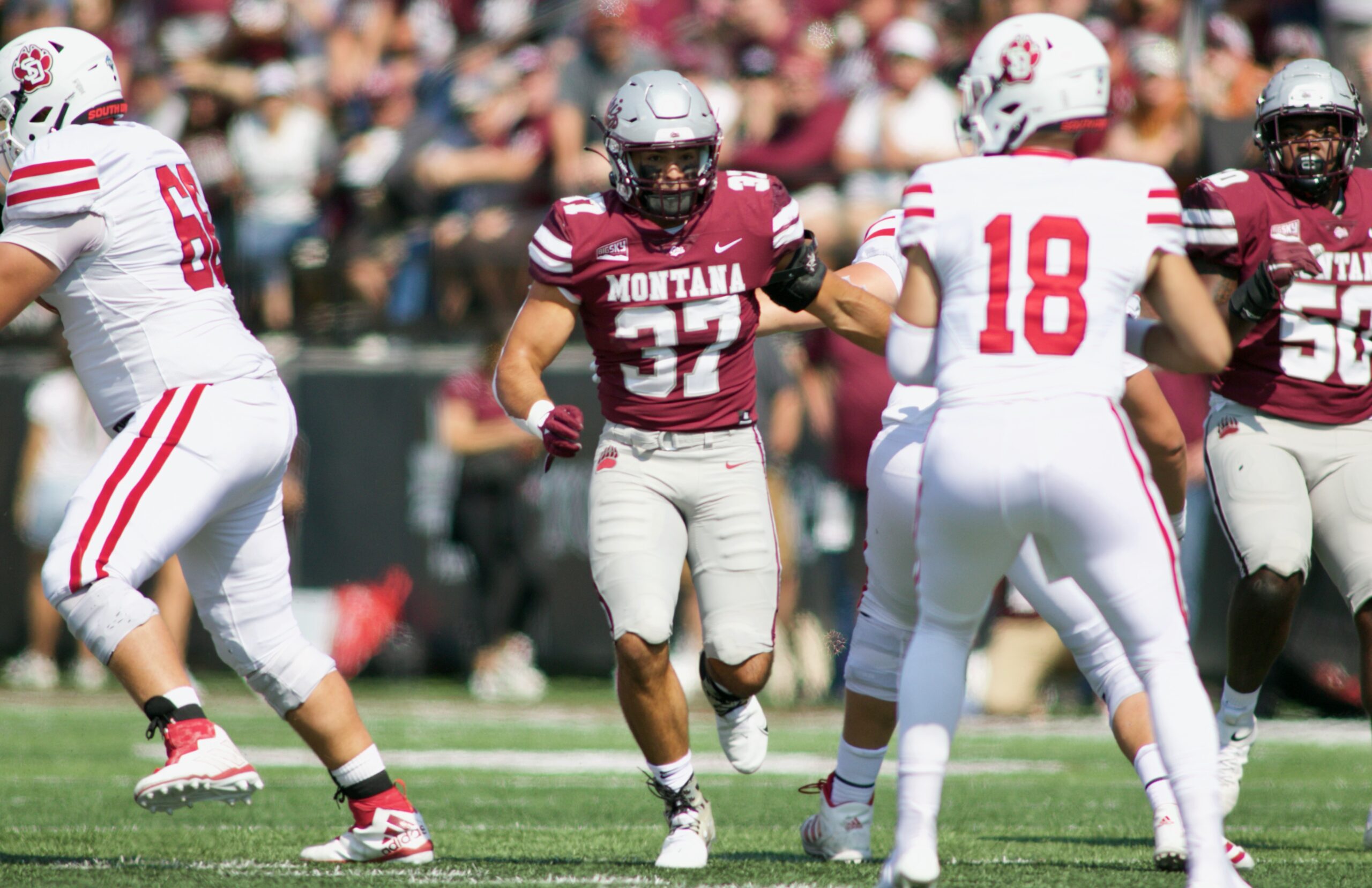
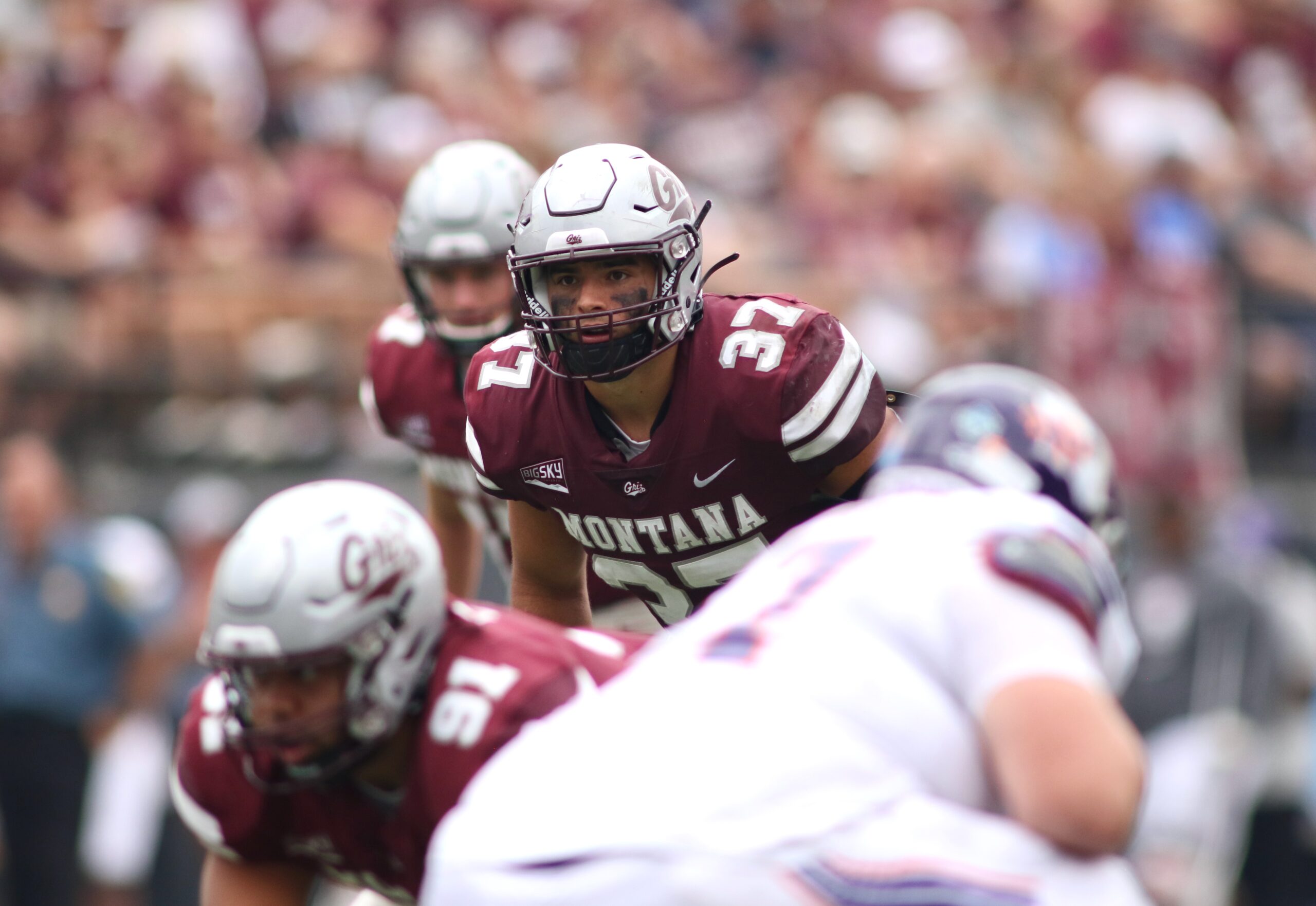
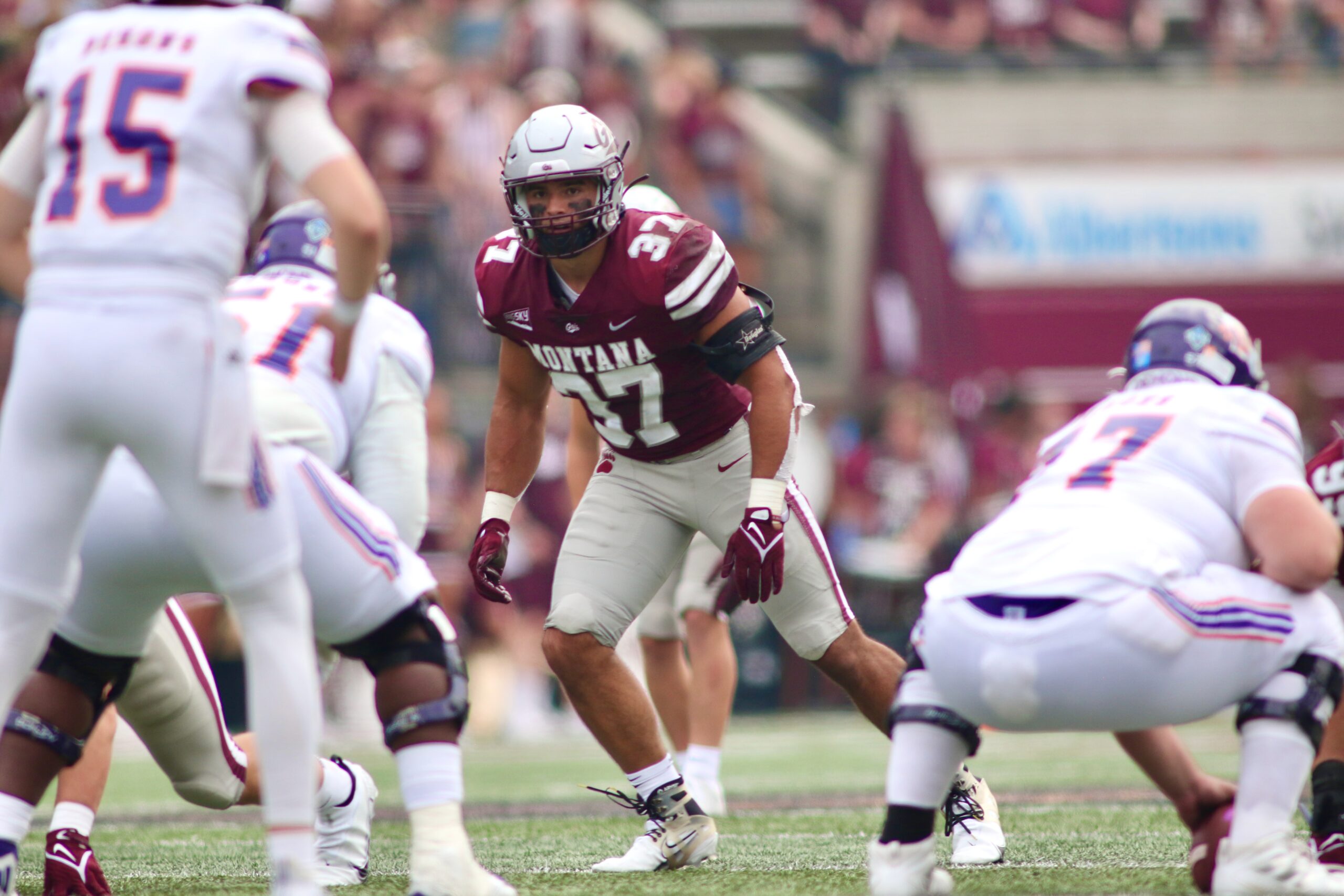

Montana linebacker Marcus Welnel (56) in 2018/by Brooks Nuanez 
Montana linebacker Marcus Welnel (10) in 2021/by Brooks Nuanez 